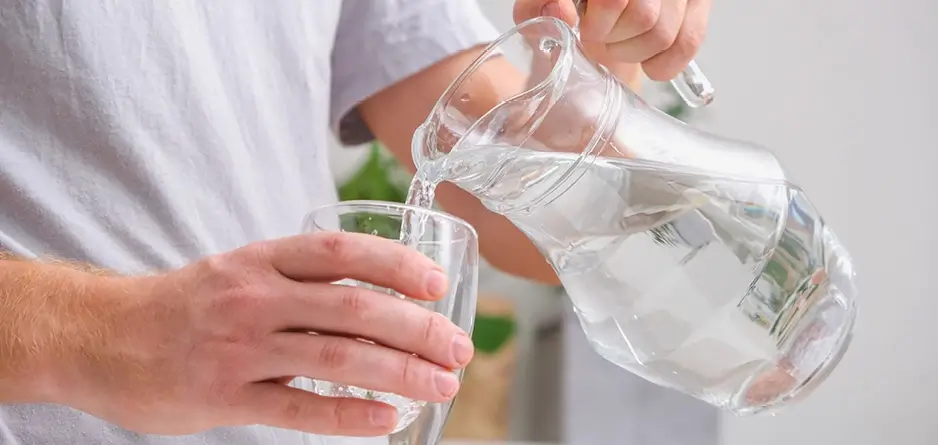Dehydration and Muscle Cramps: Separating Fact from Fiction

Area
Intermittent cramp sufferers Chronic cramp sufferersIn short…
- Muscle cramps are not solely caused by dehydration – While fluid loss and electrolyte imbalances are commonly blamed, research suggests that neuromuscular fatigue is a more significant factor.
- Hydration plays a role but isn’t a complete solution – Drinking water supports muscle function, but overhydration can lead to imbalances like hyponatremia, which may also contribute to cramps.
- Crampeze provides targeted relief and prevention – With ingredients like magnesium, cramp bark, and ginkgo biloba, Crampeze addresses muscle fatigue and circulation issues for long-term cramp management.
Calf and leg cramps are a common condition that affect many people. Whether they occur during intense exercise, in the middle of the night, or during everyday activities, their sudden onset can leave you in discomfort. Dehydration is frequently cited as a primary culprit, but is there really a connection? In this article, we separate fact from fiction and explore the different ways to manage and prevent muscle cramps.
The Dehydration Hypothesis
The idea that dehydration causes muscle cramps has been around for decades. It suggests that when your body loses fluids through sweat, the imbalance in electrolytes – particularly sodium and potassium – disrupts muscle function, leading to cramps. While this theory is widespread, recent research has questioned its validity.
What Does Science Say?
- Dehydration Alone May Not Be the Cause
- Studies have shown that muscle cramps can occur even in well-hydrated individuals. This finding suggests that dehydration alone may not be the primary trigger for leg cramps.
- Electrolyte Imbalances Are Complex
- While electrolytes play a role in muscle function, cramping isn’t always directly tied to their levels. For example, some people with normal electrolyte levels still experience cramps, while others with imbalances do not.
- Neuromuscular Fatigue Theory
- Recent research points to neuromuscular fatigue as a more likely cause. When muscles are overworked, the nervous system’s ability to regulate contractions may falter, leading to leg cramps. This theory shifts the focus from hydration and electrolytes to muscle overuse and conditioning.
The Role of Hydration in Leg Cramp Prevention
Although dehydration may not directly cause muscle cramps, it can contribute to conditions that make them more likely. Proper hydration supports overall muscle function and helps regulate body temperature, which is especially important during exercise. Drinking enough fluids can reduce the risk of fatigue and overheating, both of which are potential cramp triggers.
How Much Water Do You Really Need?
The amount of water you need varies depending on factors like activity level, climate, and individual physiology. General guidelines recommend:
- Before Exercise: Drink 500ml to 700ml of water 2–3 hours before activity.
- During Exercise: Sip 150ml to 300ml every 20–30 minutes, depending on sweat rate.
- After Exercise: Rehydrate with water or an electrolyte drink to replace lost fluids.
The Limits of Hydration
Overhydration can also be problematic. Drinking excessive amounts of water without replenishing electrolytes can dilute sodium levels in the blood, a condition known as hyponatremia. This imbalance can cause symptoms like nausea, confusion, and in severe cases, muscle cramps.
Effective Strategies for Managing Muscle Cramps
While staying hydrated is essential, it’s only one piece of the puzzle. Here are additional strategies to help prevent and manage muscle cramps:
- Balanced Electrolyte Intake
- Ensure your diet includes foods rich in electrolytes, such as bananas (potassium), nuts (magnesium), and dairy products (calcium). During prolonged exercise, consider using electrolyte drinks to maintain balance.
- Stretching and Muscle Conditioning
- Regular stretching can improve muscle flexibility and reduce the likelihood of cramps. Strengthening exercises for commonly affected muscles can also enhance endurance and decrease cramp frequency.
- Proper Warm-Up and Cool-Down
- Gradually preparing muscles for activity with a warm-up and easing them back to rest with a cool-down can minimise the risk of cramping.
- Avoid Overexertion
- Pushing muscles beyond their capacity can lead to fatigue and cramping. Gradual progression in activity levels is key.
- Magnesium Supplements
- Some studies suggest that magnesium supplementation may help reduce the frequency of cramps, especially in individuals with deficiencies.
Why Crampeze is a Superior Solution
For a comprehensive approach to managing muscle cramps, Crampeze offers a scientifically formulated solution. Unlike hydration alone, Crampeze addresses the underlying causes of cramps with its multi-ingredient formula designed for both prevention and relief.
Key Benefits of Crampeze
- Magnesium and Cramp Bark
- Magnesium helps relax muscles, while cramp bark adds additional relief for acute cramps.
- Improved Circulation
- Ginkgo Biloba enhances blood flow, supporting overall muscle health and reducing cramp occurrence.
- Safe for Daily Use
- Crampeze is suitable for long-term use, making it ideal for chronic cramp sufferers.
When to Use Crampeze
Crampeze is designed to fit seamlessly into your routine:
- For Active Days: Take before or after exercise to prevent cramps caused by muscle fatigue or poor circulation.
- For Restful Nights: Use to combat night-time leg cramps that disrupt sleep, ensuring you wake up refreshed.
Comparing Hydration to Crampeze
| Feature | Hydration Alone | Crampeze |
| Fast Acting Relief | No | Yes |
| Long-Term Prevention | Limited | Yes |
| Comprehensive Formula | No | Yes |
| Safe for Chronic Use | Yes | Yes |
While dehydration and electrolyte imbalances are often blamed for muscle cramps, the reality is more complex. Proper hydration is vital for overall health and muscle function, but it’s not a guaranteed solution for preventing leg cramps. Neuromuscular fatigue and other factors play a significant role, highlighting the need for a multi-faceted approach.
Crampeze goes beyond hydration to offer a targeted solution that addresses the root causes of muscle cramps. Whether you’re an athlete doing triathlons, someone with an active lifestyle, or someone who struggles with night-time leg cramps, Crampeze provides effective relief and prevention, allowing you to live cramp-free.





